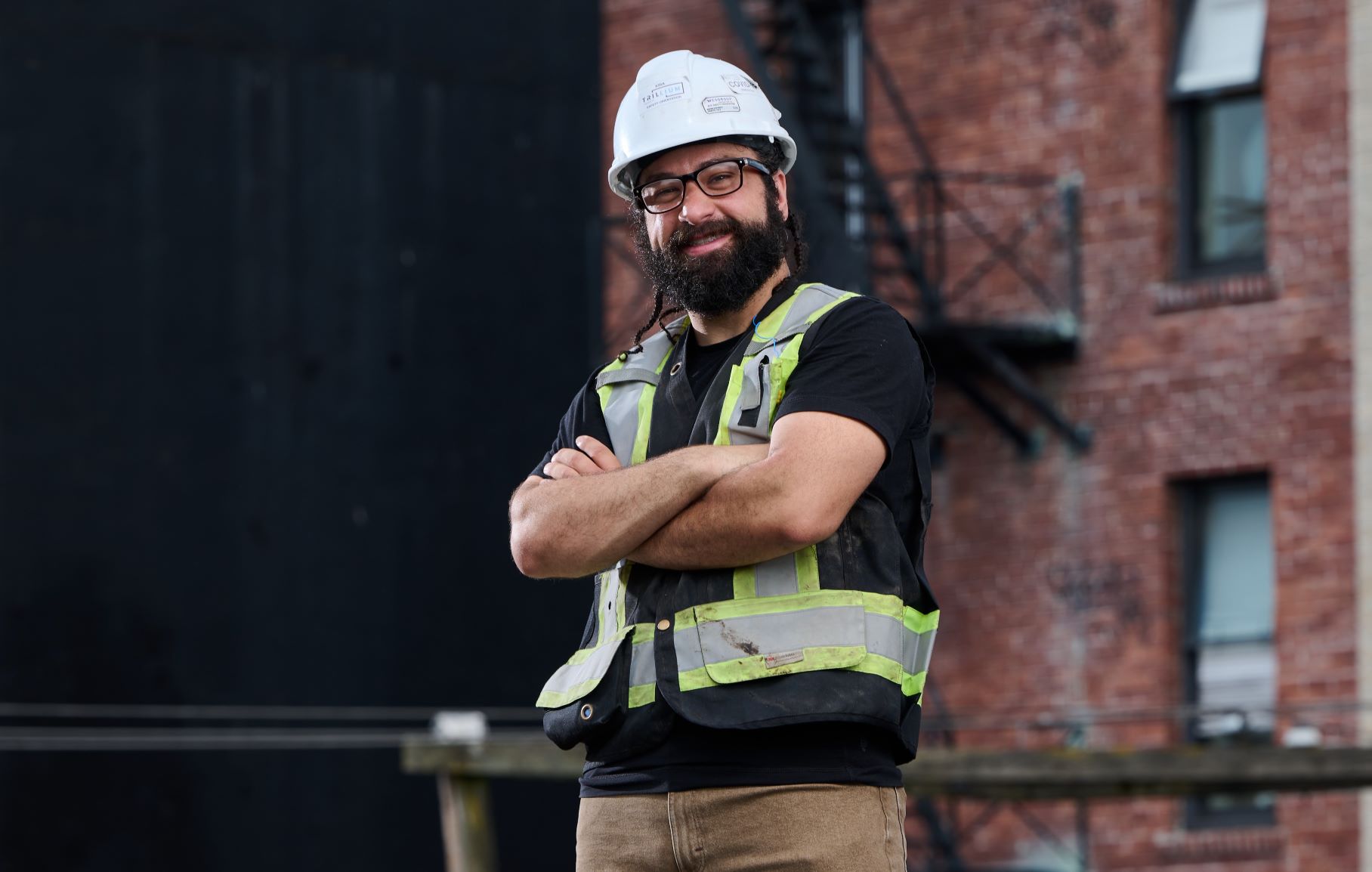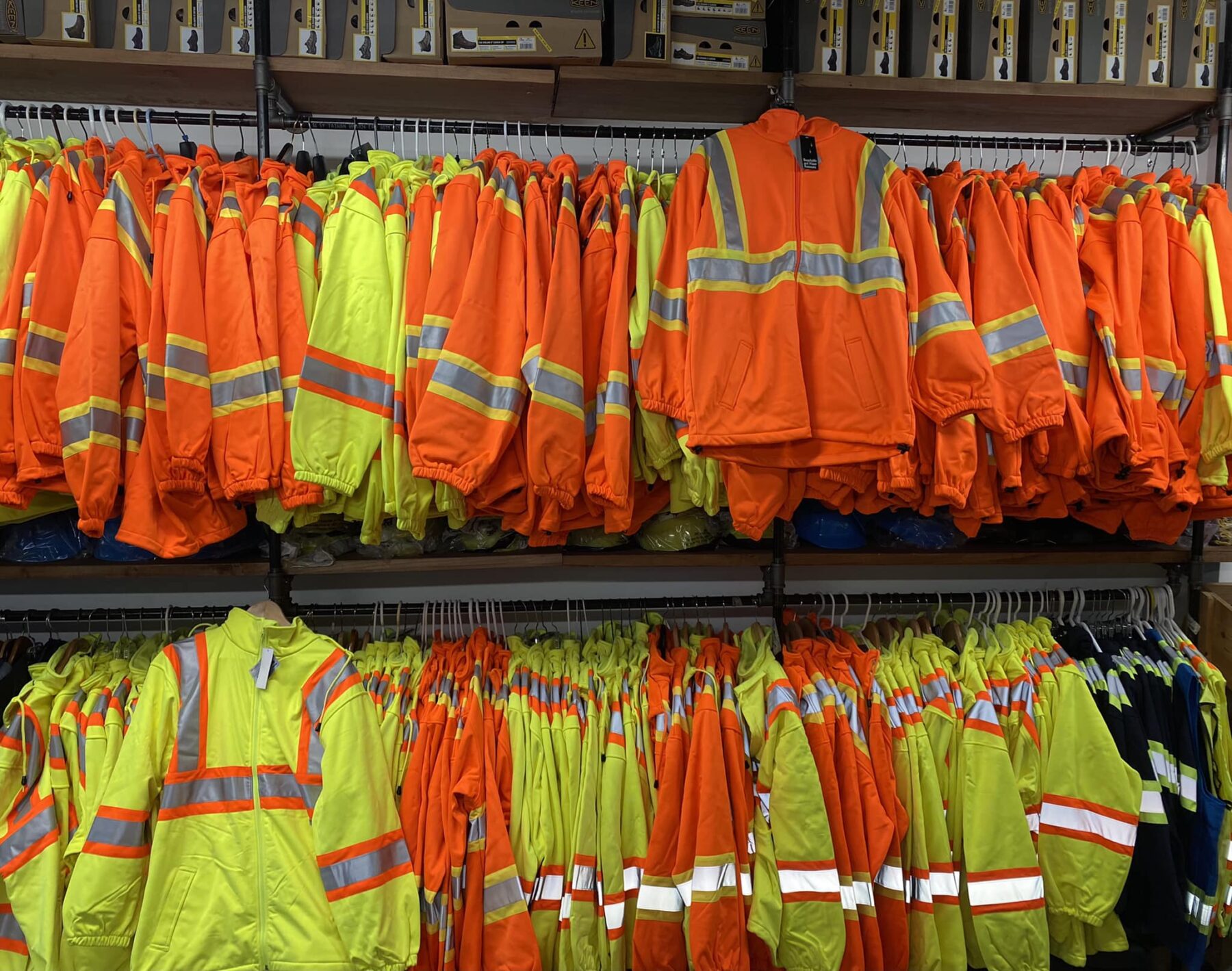No work gear? No problem
A B.C. charity is breaking barriers for marginalized groups looking for construction careers.

John Phillip is a Working Gear client who got outfitted with construction equipment. – Working Gear
John Phillip wanted to work.
He was living in transitional housing and working construction through a temp agency. But his safety gear situation was precarious. Not only was the agency charging him a steel-toe boot rental fee, many pairs had holes in them.
For B.C. charity Working Gear, that wasn’t good enough.
They got him outfitted with free boots, pants, a vest and a rain jacket. He eventually was able to secure permanent, full time employment with the company and now volunteers helping others who are looking for construction careers.
He isn’t the only one who’s needed gear help. According to the charity’s latest annual report, it assisted more than 1,100 marginalized and low-income people as they re-entered the workforce during the past fiscal year.
Growing need for construction gear
Working Gear believes that clothing and equipment costs shouldn’t be a barrier to getting on a job site. And over the years their team has had to pivot its services as construction jobs have grown in popularity.
“We learned fast that the needs of our clients weren’t necessarily for the office,” said Sarah Beley, Working Gear executive director. “It was actually lots of people getting back to construction.”
Working Gear provides industry appropriate clothing free of charge to help individuals enter the workforce in the Lower Mainland – whether it’s a suit for an interview or construction clothing and steel-toed boots for a job in the trades. All its clients are sourced from a list of 71 referral agencies that serve Indigenous people, refugees, those struggling with mental health issues, those struggling with homelessness and more.
Located in Vancouver’s downtown eastside, Working Gear also runs a barbershop and provides hair services onsite for clients to assist them in their job searches.
Focusing on low income and marginalized people
The charity originally was focused on regular work clothes but found there was a major need for construction gear. They also found that that many women were looking to transition into construction roles.
“For women getting into construction it tends not to be their first career,” said Beley. “They have done hospitality or customer service but it wasn’t giving them stability. That’s more of the trend.”

She noted that this was especially true during the pandemic, when many hospitality and service jobs were severely impacted.
“With men, it’s everything from newcomers, those with substance use challenges, those with mental health challenges, people who have been through the criminal justice system, people who have aged out of foster care and don’t have the supports that others have,” said Beley.
These men are often older and the 55+ demographic of clients has been growing, she added.
Creating community
Beley herself knows about some of the challenges life can throw at you. Her father died when she was nine, her mother suffered from mental illness and her uncle disappeared in Vancouver’s downtown eastside. Beley says her experiences have given her a unique lens into the trauma, pain and helplessness of marginalized people in society, and the negative impact this has on their mental health and economic prospects.
“I did not have the best childhood,” said Beley. “I was in foster care. I know the feeling of being helpless. People often just don’t know how to help. This is a simple solution. Once people see it for themselves, it is easy to understand.”
Beley noted that the charity has created a community where clients can feel safe to ask for help..
“It’s a safe space to be vulnerable,” she said. “The majority of clients are guys and we find they have a hard time asking for help. When they come in it’s embarrassing for them but after a bit they open up and are at ease.”
How to help
For construction, the charity accepts donations of steel-toed work boots, high-visibility vests, work overalls, rain gear, work gloves, tool belts, hard hats and goggles. But Beley stressed that boots and hardhats are the most in-demand items and they must be new as they are critical safety gear.
The charity also needs volunteers with construction experience who can give their clients advice on the gear. The charity is at 475 Main Street in Vancouver. They can be reached by email at info@workinggear.ca

